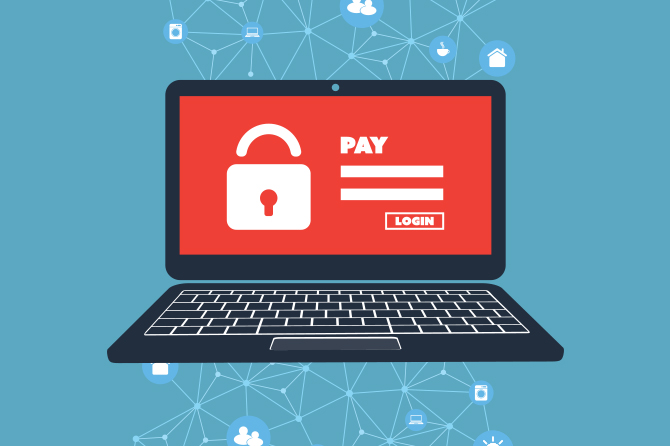
In today’s digital age, data breaches have become alarmingly common, leaving millions vulnerable to identity theft and financial loss. Nearly every week, it seems like another major company announces they have been hacked, exposing sensitive personal information like phone numbers, email addresses, credit card details, and even Social Security numbers. These breaches do not just impact the companies targeted — they put everyday people at serious risk.
Take a look at some of the most notable data breaches in the past month that have impacted companies like PowerSchool, Ascension Health, Chrome Extensions, Cariad, and the Green Bay Packers Store and you’ll see why protecting yourself with IDSeal® has never been more important.
Organization Description: PowerSchool is a leading cloud-based education software provider for K-12 schools based in California.
Breach Size: Over 71 million people
Data Exposed: PowerSchool has confirmed a major cybersecurity incident affecting its school information system, PowerSchool SIS, which schools use to manage student records, grades, attendance, and enrollment. The breach allowed threat actors to access and steal sensitive personal information belonging to students, teachers, and parents from over 6,000 school districts, reportedly affecting over 62 million teachers and over 9 million students. According to PowerSchool, hackers used compromised credentials to breach its customer support portal, allowing further access to PowerSchool SIS. The incident is still being investigated.
Organization Description: Ascension Health is one of the largest private health care systems in the U.S.
Breach Size: 5.6 million people
Data Exposed: Last month, Ascension Health notified nearly 5.6 million patients and employees that their personal and health data was stolen in a May 2024 cyberattack orchestrated by the Black Basta group. The breach, stemming from an employee unknowingly downloading a malicious file, exposed a staggering range of sensitive information, including medical records, Social Security numbers, insurance details, and payment data. With 140 hospitals and 40 senior care facilities under its umbrella, Ascension Health’s size highlights the scale of this incident. The organization quickly engaged law enforcement, cybersecurity experts, and federal agencies like the FBI to investigate the attack.
Description: Chrome extensions are small software programs that customize the Google Chrome browser.
Breach Size: 380,000 people
Data Exposed: A recent wave of cyberattacks has targeted popular Chrome extensions, compromising user data on a large scale. At least five extensions were hijacked through a coordinated effort by threat actors injecting malicious code designed to steal sensitive information. The attack began with a phishing scam that tricked an administrator into granting access to the Google Chrome Store, allowing hackers to publish a compromised version of the Cyberhaven extension. Although Cyberhaven's team detected and removed the malicious version within an hour, other compromised extensions — including Bookmark Favicon Changer, VidHelper, and ChatGPT Assistant — have collectively affected nearly 380,000 people.
Organization Description: Cariad is an automotive software company for Volkswagen Group based in Germany.
Breach Size: 800,000 electric vehicles
Data Exposed: Cariad inadvertently left the sensitive data of 800,000 electric vehicles and their owners exposed online, creating a privacy nightmare. The data, stored unprotected in Amazon cloud storage, included precise geolocation details for 460,000 cars along with customer names and personal information. With minimal technical effort, hackers were able to track vehicle movements and access sensitive details for Volkswagen, Audi, Seat, and Skoda cars. Among the affected were police patrol cars in Hamburg, Germany, and even vehicles tied to intelligence service employees and German politicians.
Organization Description: American Addiction Centers, Inc. is a leading provider of addiction treatment services across the U.S.
Breach Size: 422,424 people
Data Exposed: In a high-profile cybersecurity breach, American Addiction Centers (AAC), fell victim to a ransomware attack by the notorious Rhysida group. First identified in September 2024, the breach was later confirmed to have compromised sensitive information, including names, addresses, dates of birth, Social Security numbers, health insurance details, and even medical record identifiers. With 422,424 individuals affected, this incident underscores the growing threat of ransomware attacks targeting health care providers.
Organization Description: Green Bay Packers Store is an official Pro Shop online retail store.
Breach Size: 8,514 people
Data Exposed: The Green Bay Packers, an iconic franchise in the National Football League (NFL), recently disclosed a data breach that compromised the credit card information of 8,514 customers. Cybercriminals hacked the team’s official online retail store in a September 2024 incident. Upon being notified of the breach in October 2024, the Packers swiftly disabled checkout and payment capabilities to mitigate further damage. While details were sparse in breach notification letters sent to affected customers, documents were filed with legal authorities confirming the extent of the impact.
Organization Description: Medusind is a leading billing provider for health care organizations.
Breach Size: 360,964 people
Data Exposed: Medusind has disclosed a significant data breach that compromised the personal and health information of over 360,000 individuals. Despite detecting suspicious activity on its network in December 2023, the Miami-based company — which operates in 12 locations across the U.S. and India — recently notified affected individuals.

Malware, which is short for malicious software, includes a variety of tactics designed to cause harm to devices, networks, or data without a user’s knowledge. Common types of malware include viruses, worms, ransomware, spyware, and trojans. Malware can infiltrate systems through infected files, malicious links, or security vulnerabilities. For example, a hacker might install spyware on your computer through a suspicious email attachment. Once it's installed, the spyware can track your web browsing, keystrokes, and even steal passwords.

As previously stated, ransomware is a type of malicious software. It comes at a literal cost, blocking access to a computer or encrypting its data until a ransom is paid. Like most malware, ransomware spreads through phishing emails, malicious links, or software vulnerabilities. Once activated, ransomware can lock users out of their devices or render files inaccessible until a ransom is paid (often in cryptocurrency). But it gets worse: Paying the ransom won’t guarantee regaining access and can actually encourage more attacks.
As the rise in cyberthreats and ransomware continues to make headlines, one thing is clear: Protecting yourself against data breaches has never been more important. Taking proactive steps like using strong passwords, enabling multi-factor authentication, updating your antivirus software, and remaining alert to phishing scams can greatly reduce your risk of identity theft. Our identity theft and device protection services take it a step further, offering real-time alerts and malware protection to ensure you are aware of threats the moment they happen. Through our social media pages, we’ll help you stay aware of cybercriminal activity and stay ahead of any threats to your data or devices with our comprehensive plans.

Major Data Breaches & Hacking News in June 2024

IDSeal® allows you to independently manage your identity
Start protecting your identity today! Signing up is quick & easy
Remember, 1-in-4 Americans are the victim of identity theft. It's not a matter
of if you'll become a victim, it's when...